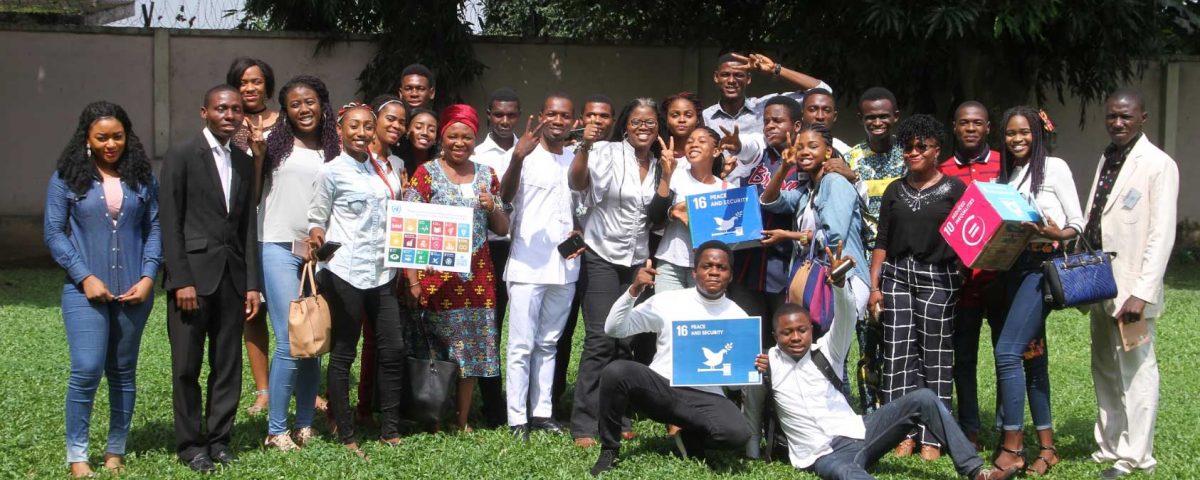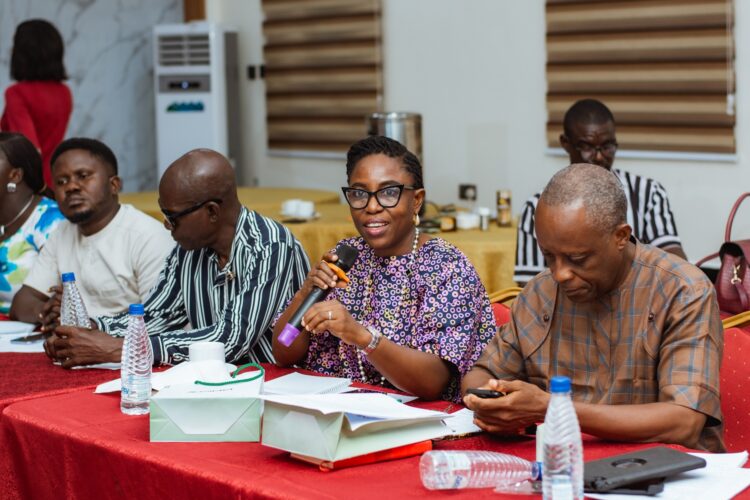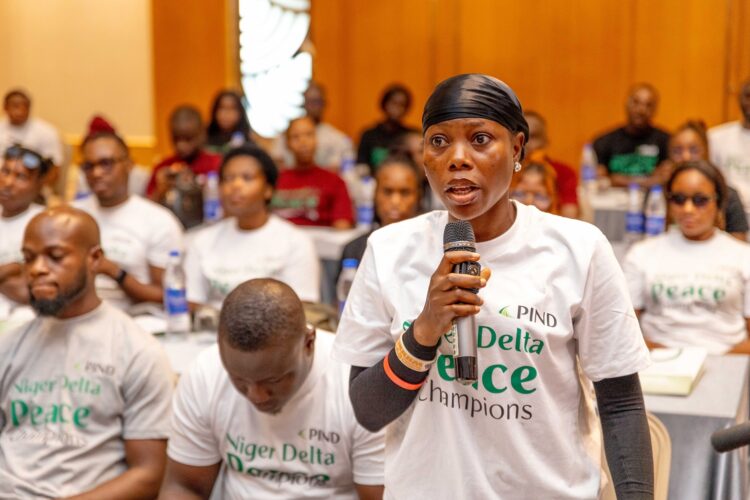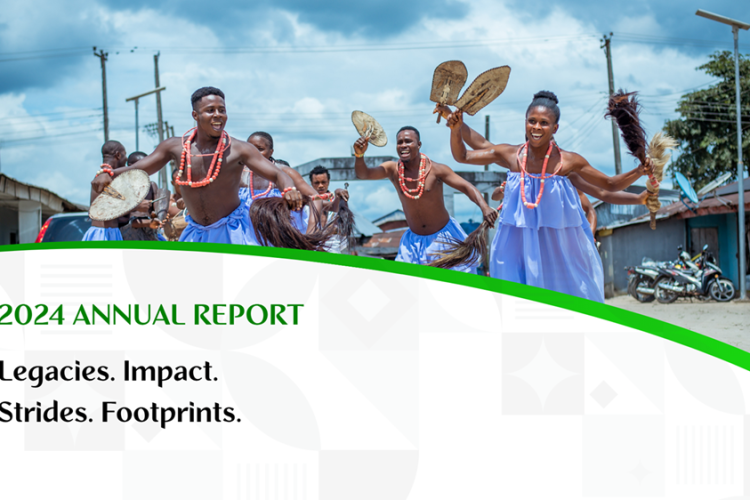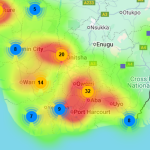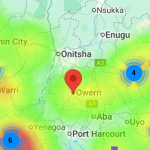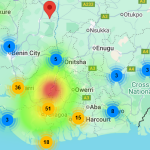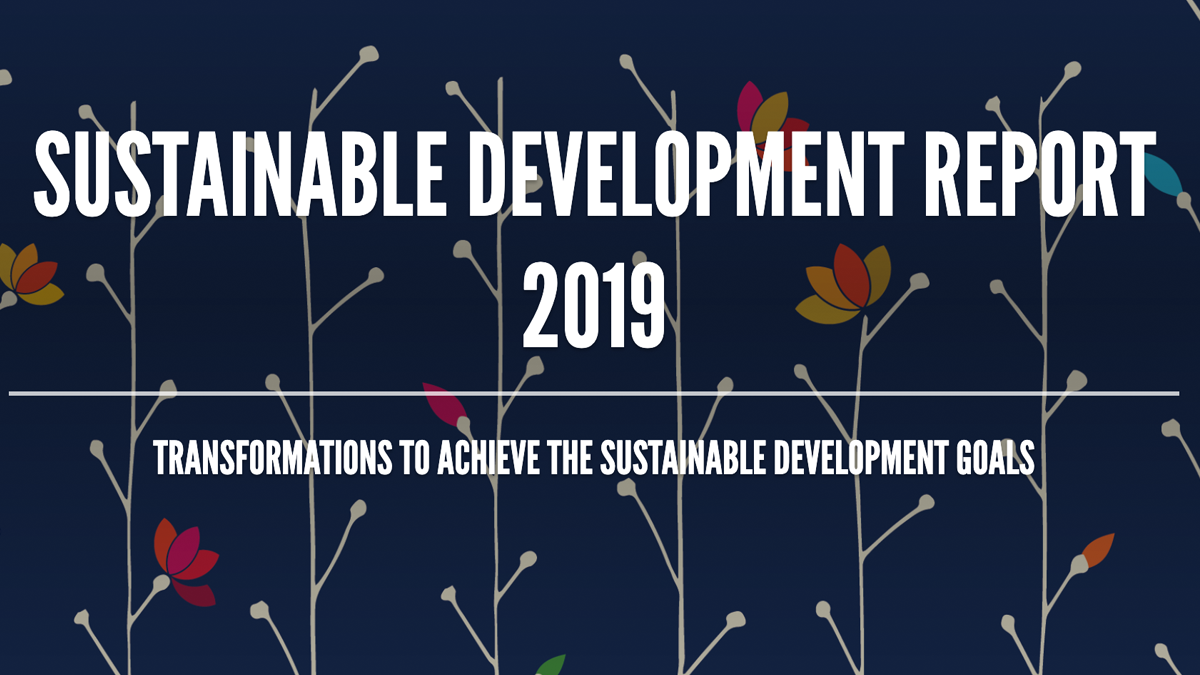
Nigeria ranks 159 out of 162 Countries on 2019 SDGs Index
June 19, 2019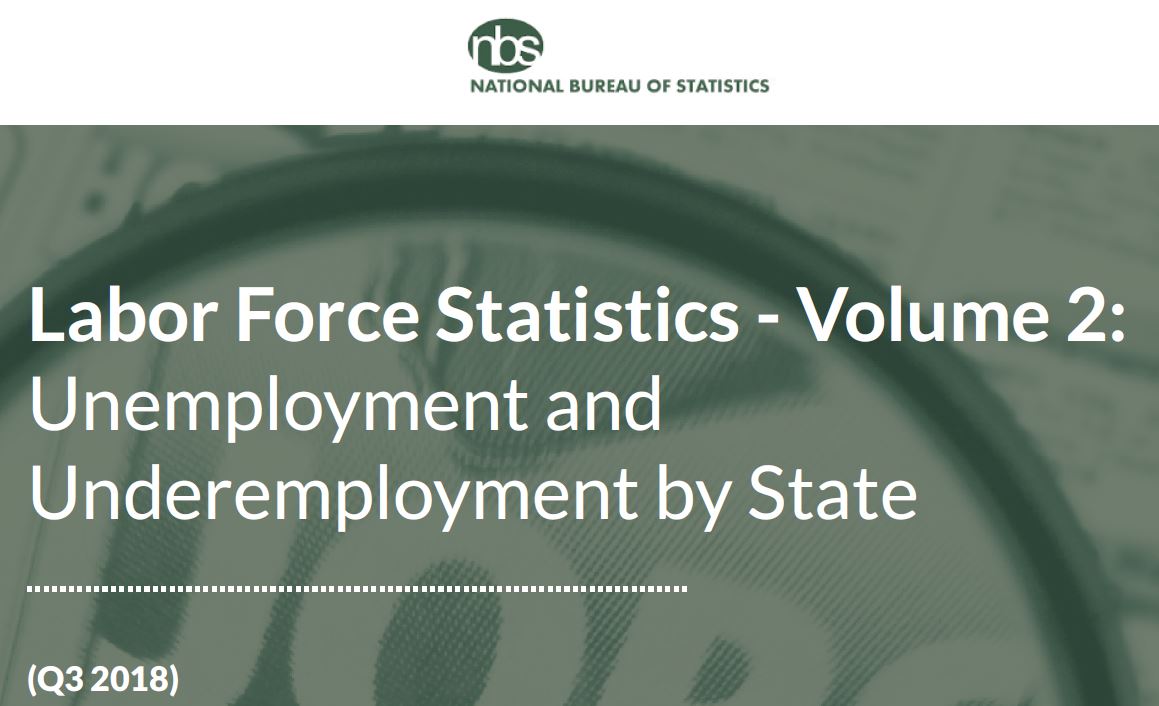
Unemployment and Underemployment in Nigeria (Q3 2018)
June 20, 2019
Do you know which generation is the largest today? Millennials, or people born between 1981 and 1996, make up the largest portion of the world population and have different traits than other generational cohorts. Millennials are committed to implementing Sustainable Development Goals (SDGs), including equality, climate change, peace, justice, poverty, and prosperity. They have unique consumption trends that make SDGs goals more attainable. Their tastes and preferences support creating sustainability and equality for all.
Sustainable and ethical business practices are forcing most organizations to conform to environmental, social, and governance tenets such as diversity & inclusion and transparency. Millennials are investing in and working for companies that have embraced visible sustainable practices.
8 Characteristics of the Millennial Generation That Promote Sustainability
1. Socially Conscious— Millennial social awareness is part of their work life because they have grown up with the internet and social media. 79% of millennial employees are loyal to companies that care about their effect on society. They believe that corporate social responsibility is key to alleviating poverty and improving life outcomes. They have encouraged their employees to donate their time, and several companies to donate 1% of their profits, to charity.
They express their sociability online through social media apps such as Facebook, Twitter, and Instagram, among others, and this enables them to share and receive information, making millennials the most connected generation.
2. Technology-based— Three years ago, millennials overtook Gen Xers and became the largest cohort in the workplace in the United States. The generation has unique attributes such as being web-savvy, curious, independent, and tolerant. The millennials grew up in an electronic and online environment that created their eagerness to acquire new skills. They are adept at using their smartphones, laptops, and other technological gadgets to help to better perform their jobs. This generation has placed such a priority on the internet and cell phone that they can’t imagine a world without these devices.
3. Ethnically Diverse and Optimistic— Millennials comprises the most ethnically diverse generation. This cohort is open-minded since they were raised in a networked world. They are connected through the use of mobile apps and social media websites. They are optimistic about a sustainable future because they are a digital generation that believes in technology. They develop friendships with people across all races, ethnicities, and genders. They are not shy about supporting diversity and inclusion at all levels of life.
4. Embrace Experiences and Ethical Spending— Millennials value experiences. Their digital personalities and traits showcase their experiences, such as traveling, working as digital nomads, participating in university exchange programs, and working in foreign countries, among other ventures. They spend their money on ethical and sustainable experiences such as eco-lodges. Ecotourism options appeal to them because they believe in reducing their carbon footprint.
5. Educated and Knowledgeable— Millennials have been described as the most educated and knowledgeable generation in history. They have access to higher education, and they are motivated to learn. Student loans have played a role in increasing the level of education in this cohort.
According to the Pew Research Center, 63% of millennials value a college education and are preparing to acquire one. A total of 19% are already college graduates, and the remaining 44% are still in college working toward graduation
The emergence of social media has allowed millennials to increase their knowledge by sharing information. Since they were exposed to computing devices at an early age, they know how to use them to increase their knowledge. Some take online courses and learn skills that help them participate in the gig economy.
Editor’s Pick
Africa SDGs Index and Dashboard Reports 2018
Ebenezar Wikina: What I Learned from Lecturing (Part II)
Social Media & Conflict in Nigeria: a lexicon of hate speech terms
Study: More young people, especially girls attempting suicide
6. Health Conscious-– Millennials prefer healthy food to fast food. A total of 8 out of every 10 millennials believe that eating healthily is key to longevity and wellness. Millennials use technologies developed to diminish the risks of disease and other health problems related to aging. The use of artificial intelligence programs is transforming health care across the world into quantifiable services. Millennials have been referred to as the most health-conscious generation ever because of their access to online health information. Health information empowers them with ideas about good foods such as chia seeds, avocado, and cayenne pepper, among others. They are enrolling in apps such as Peloton that enable them to work out in the natural environment. Online information has helped them understand negative health effects such as night walking and sleep anxiety, among others.
Millennials are dedicated to having a work-life balance. They are investing in their health while making lifestyle choices that prioritize mental and physical health.
7. Financially Conscious–Millennials earn 20% less income than their parents. Their rate of property ownership is lower than that of baby boomers, and their low income forces them to rent property instead of owning it. They prefer the “sharing economy” services such as hiring cars instead of buying them. To compensate for their low income, a good number of millennials focus on building their savings. According to a recent Bank of America survey, 16% of millennials aged between 23 and 37 have already saved $100,000 in their accounts for retirement. They are keen on saving for the future.
Millennials are also putting their monies into socially responsible investments (SRIs), or “impact investing.” Impact investing, also known as “green investing,” involves putting money into organizations that have a positive impact on the world. Adam Connaker, an associate at The Rockefeller, discovered that millennials are investing in systems that have an impact on the world. They want to have a positive effect on their communities’ future, and they want to improve people’s happiness and longevity.
Millennial interest in SRIs is having a notable effect. In 2017, 234 mutual funds and exchange-traded funds (ETF) that invested in SRIs were tracked for social, environmental, and governance factors by Morningstar, a fund tracker. The assets in these funds had risen by 142% since 2012 because of an increase in the demand for socially responsible investing.
8. Spiritually Conscious — The spirit of equality and reconnecting with goals aimed at saving the planet stem from the spiritual consciousness of millennials. Matthew Hedstrom, an associate religious studies professor at the University of Virginia, points out that millennials are more spiritually conscious than previous generations.
They are less attached to organized religion but identify more with spirituality. In 2015, Pew Research Center findings showed that 34% of millennials don’t identify with a religion. Millennials believe in human rights more than religion. In connecting with spirituality, they believe in the concept that all human beings are equal. They feel a deep sense of connection in helping each other regardless of gender, race, religion, or political affiliation.
They are moving away from mass consumer capitalism toward religious-product consumerism. They want to connect spiritually through yoga, meditation, prayer, going to concerts, a belief in heaven, and karmic forces.
Millennials often travel around the world experiencing many religions. In a bid to let every individual uphold their own beliefs, they have opted for spirituality. Instead of worshipping at different altars, they have reawakened spirituality. Religious products and anything that connects them with nature appeal to them. They want to defend their future and the planet, which is leading them to choose firms that embrace sustainability.
The millennial generation is conscious at all levels. They want to save their money and invest in a socially responsible manner because they believe in changing communities. They are more racially and ethnically diverse, which has helped them support and fight for equality and human rights. Social and spiritual consciousness encourage them to conserve the environment for future generations. Millennials will certainly use technology in all aspects of their lives to support diversity and inclusion. They are trying to make the world a better place by pushing for the implementation of SDGs.
SOURCE: Forbes


